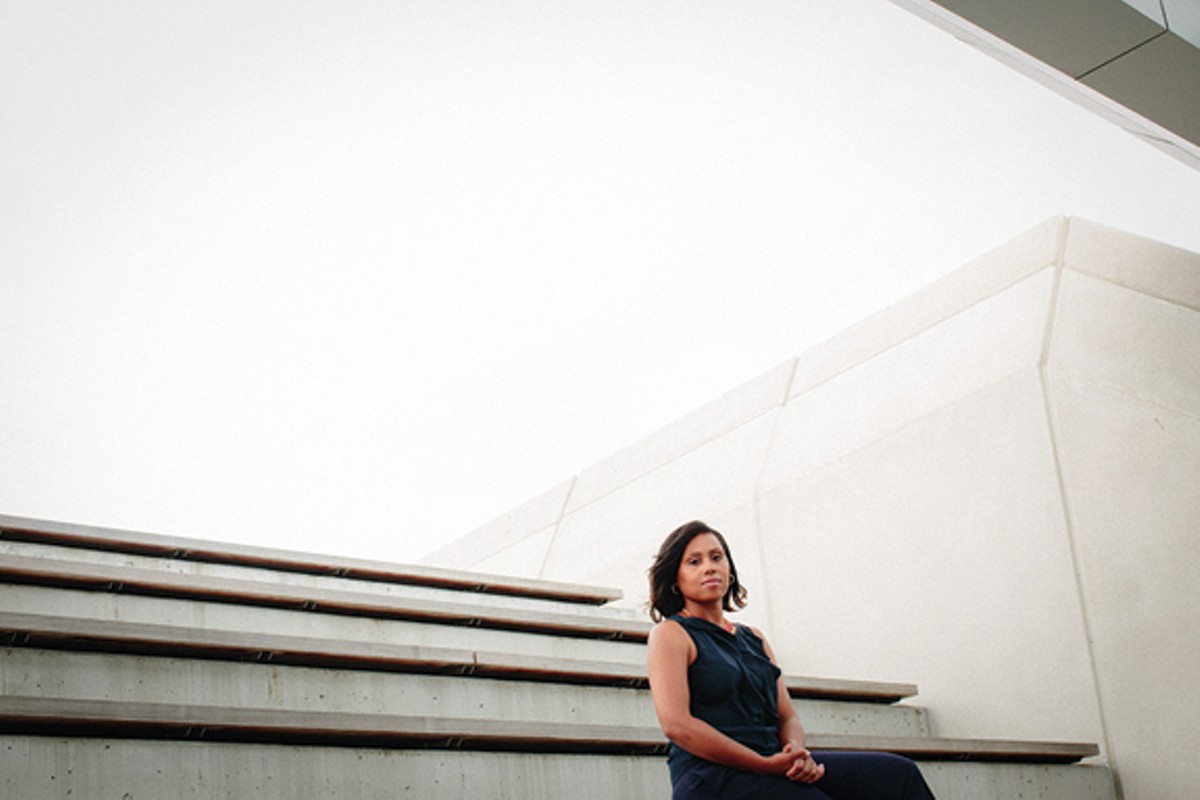Earlier this year, Cassi Pittman took the stage at the East Cleveland Public Library to deliver a powerful analysis of the debate over annexation: Should the city in which she grew up agree to a merger with the city of Cleveland?
It's a question that's sparked debate for years. Now, both cities are inching toward more realistic conversations and petition-signing processes. There's a sense on both sides of the political boundary that this could happen. But, joining many others in her outlook, Pittman isn't sold. For one, she's a native East Clevelander. Born and raised, before heading east to the University of Pennsylvania and Harvard, and returning to her post now as a professor at Case Western Reserve University, she's rooted here. And she's not sure that handing over the reins of the city to another political body wracked with the same troubles is the best idea.
"Some of the things that are going on in East Cleveland — it's such a case study of so many different issues," she says, referencing the concentration of political power, the diminishing tax base, the decline of city services and more. She used her time during the keynote speech at the library to illuminate how East Cleveland's problems are mirrored almost perfectly by issues plaguing Cleveland's Glenville neighborhood.
Pittman started out at East Cleveland Public Schools. In fifth grade, she transferred to nearby Hathaway Brown, where she had a front-row seat to the social inequalities that drive politics and economics in this country.
"Some of my [East Cleveland] classmates, I just remember them being so brilliant," Pittman says. "We would have science fairs, and everyone would have these super creative projects. Then, when I left for HB, I felt like there was this assumption that because I came from East Cleveland I would be behind." Whereas students at Hathaway Brown were told that they could do anything they wanted as they grew up, her former classmates in East Cleveland were hit with the hard realities of bleak graduation rates and the too-often out-of-reach goals of college and careers.
Pittman, thankfully, has made of her life what she wanted. Now teaching in the sociology department at Case (teaching criminology and economic sociology), she is determined to study how best to improve the urban core of Northeast Ohio. She's hoping to teach an actual class on Cleveland and its socioeconomic past and present in the future.
For as diverse a region as it is, she says, the racial and class-based divides run deep. As we talked in the cafeteria at the Tinkham Veale Student Center, it was hard not to remember that physical and structural disrepair exist in almost every surrounding neighborhood — and while many leaders have spent time championing "regionalism" as political end. It's one disc in the backbone of rhetoric supporting a Cleveland-East Cleveland merger. "But I can't understand why we can't have the benefits of regionalism without necessarily losing our municipality," Pittman says.
Smart, confident and dedicated to her community, Pittman embodies the sort of New Resident around whom East Cleveland and most cities throughout Northeast Ohio need to structure themselves, no matter the outcome of the debate.










